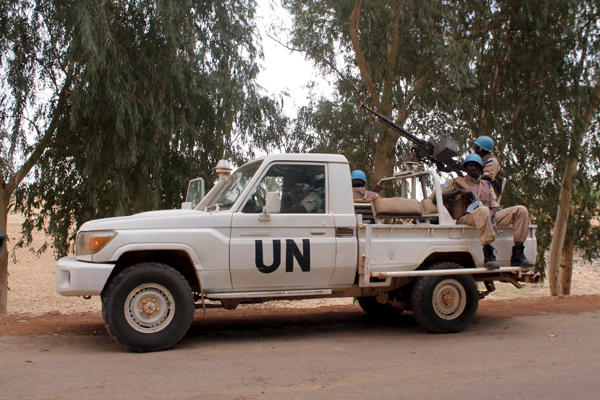UN peacekeepers commonly pay for sex: study
 |
|
UN peacekeepers patrol in the northern town of Kouroume, Mali May 13, 2015. [Photo/Agencies] |
UNITED NATIONS - United Nations peacekeepers commonly pay for sex with cash, dresses, jewelry, perfume, cell phones and other items, despite a ban on such relationships with people the world body is trying to help, a draft UN report concluded.
The draft study by the UN Office of Internal Oversight Services (OIOS), obtained by Reuters on Wednesday, said surveys of hundreds of women in Haiti and Liberia found their reasons for selling sex included hunger, poverty and lifestyle improvement.
"Evidence from two peacekeeping mission countries demonstrates that transactional sex is quite common but underreported in peacekeeping missions," concluded the OIOS draft dated May 15.
The United Nations currently has more than 125,000 troops, police and civilians deployed in 16 operations around the world.
The OIOS draft report also noted that "the number of condoms distributed, along with the number of personnel undergoing voluntary counseling and confidential testing for HIV ... suggest that sexual relationships between peacekeeping personnel and the local population may be routine."
It said a UN bulletin issued in 2003 banned transactional sex by peacekeepers, in part because it undercuts the organization's credibility in areas where it is serving.





















